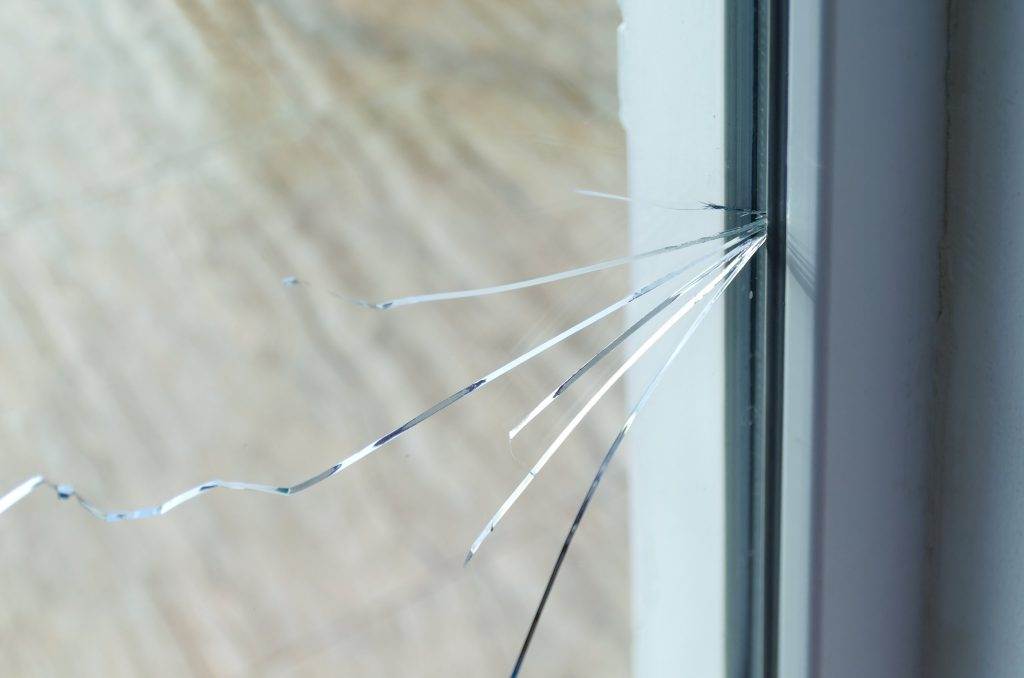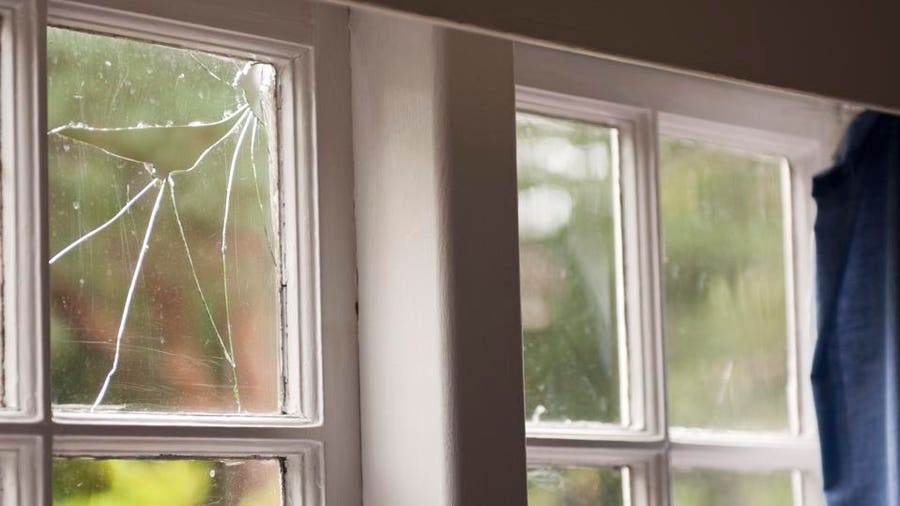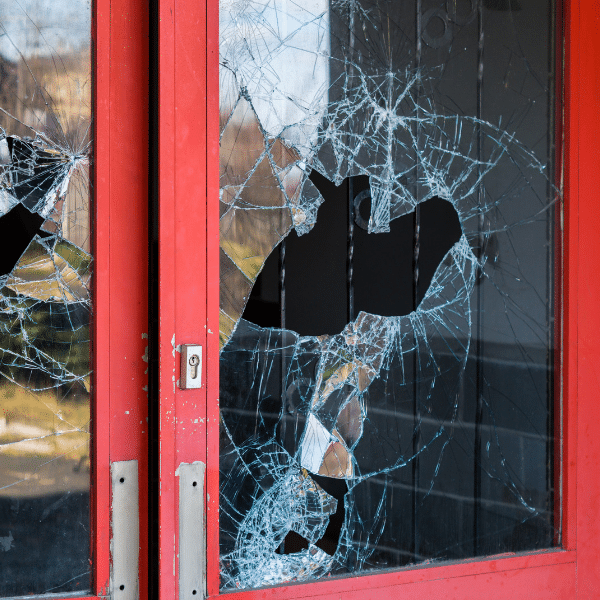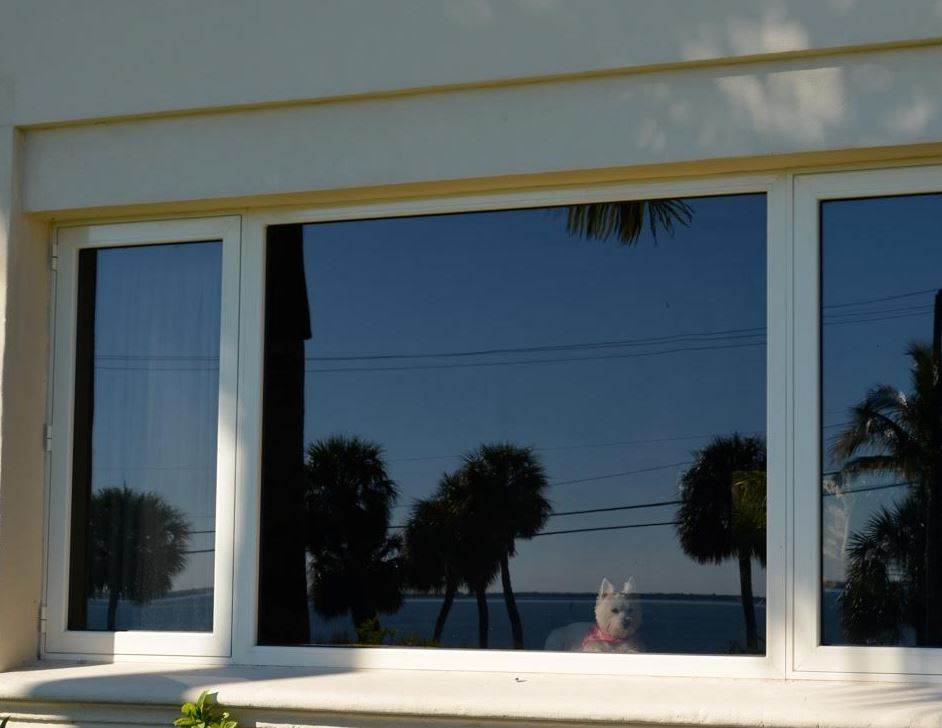In this article, we will discuss whether hurricane windows are prone to cracks. If you live in an area prone to hurricanes, you may be considering installing hurricane windows in your home for added protection. We will explore the durability and strength of these windows, and whether they can withstand the impact of flying debris during a hurricane.
Hurricane windows are specifically designed to withstand extreme weather conditions, including strong winds and flying debris. These windows are made from impact-resistant glass and are tested to meet strict building codes and standards. While no window is completely crack-proof, hurricane windows are significantly more resistant to cracks compared to regular windows. They are built to absorb the impact and distribute it evenly across the glass, reducing the chances of cracks. However, it’s important to note that the level of impact these windows can sustain may vary depending on the specific type and quality of the window. In general, hurricane windows are highly durable and are designed to provide an extra layer of protection for your home during severe weather events.

This image is property of www.windowguysflorida.com.
Understanding Hurricane Windows
Hurricane windows are specially designed windows that are engineered to withstand strong forces, such as high winds and flying debris, during severe weather conditions like hurricanes and storms. These windows are constructed using materials and techniques that make them more resistant to cracks and breaks compared to regular windows.
What are hurricane windows?
Hurricane windows, also known as impact windows, are made with laminated glass that is sandwiched between two layers of robust plastic film. This construction makes the windows much stronger and more durable than traditional windows. In addition to the impact-resistant glass, hurricane windows also feature reinforced frames that provide added strength and stability.
How are hurricane windows different from regular windows?
The key difference between hurricane windows and regular windows lies in their ability to withstand strong forces. Typical windows are made with standard glass, which is much more likely to crack or shatter when exposed to high winds or flying debris. On the other hand, hurricane windows are designed to absorb and dissipate the energy from impact, minimizing the risk of cracks or breaks.
Factors Affecting Window Crack Resistance
Several factors can influence the resistance of hurricane windows to cracks and breaks. Here are some key considerations when evaluating the crack resistance of these windows:
Window frame material
The material used for the window frame can impact its overall strength and resistance to cracks. Common materials for hurricane window frames include aluminum, vinyl, and fiberglass. These materials are known for their durability and ability to withstand harsh weather conditions.
Glass thickness
Thicker glass is generally more resistant to cracks and breaks. Hurricane windows often feature thicker glass, typically ranging from 0.5 to 1 inch in thickness. This added thickness provides additional strength and protection against impact.
Impact resistance rating
Hurricane windows are assigned an impact resistance rating based on their ability to withstand different levels of pressure. The rating scale ranges from Class A to Class D, with Class A representing the highest level of impact resistance. When choosing hurricane windows, it is important to ensure that they meet the required impact resistance rating for your specific geographical location.
Installation quality
Proper installation is essential to ensure that hurricane windows perform effectively. Poorly installed windows may be more prone to cracking and other issues. It is crucial to hire a professional installer who has experience with hurricane window installation to ensure a secure and reliable fit.
Testing Standards for Hurricane Windows
Several testing standards have been established to evaluate the impact resistance and overall performance of hurricane windows. These standards help determine whether a window meets the necessary requirements to withstand severe weather conditions. The most widely recognized testing standards for hurricane windows include:
American Society for Testing and Materials (ASTM) standards
The ASTM sets the industry standards for various building materials and products, including hurricane windows. ASTM testing involves subjecting the windows to simulated hurricane conditions, such as high winds and airborne debris, to assess their performance.
Miami-Dade County protocols
Miami-Dade County in Florida is known for its stringent building codes and protocols for hurricane-resistant construction. Windows that are approved by Miami-Dade County are considered to be of exceptional quality and capable of withstanding severe weather conditions.
Florida Building Code requirements
The Florida Building Code outlines strict requirements for building construction in the state, including the installation of hurricane windows. These requirements ensure that windows are designed and installed to meet the necessary standards for wind resistance and impact protection.
Benefits of Hurricane Windows
The use of hurricane windows offers several significant benefits, beyond just their crack resistance. Here are some key advantages of installing hurricane windows in your home:
Enhanced safety during storms
By withstanding the impact of flying debris, hurricane windows help protect occupants from potential harm during severe storms. The laminated glass is designed to remain intact, even if it cracks, preventing shards of glass from causing injury.
Protection against intruders
In addition to their resistance to impact, hurricane windows also provide enhanced security for your home. The reinforced frames and laminated glass make it much more difficult for intruders to break in through the windows.
Energy efficiency
Hurricane windows are built with energy efficiency in mind. The multiple layers of laminated glass, along with the reinforced frames, offer improved insulation, reducing heat transfer and energy loss. This can result in lower energy bills and increased comfort within the home.

This image is property of thumbor.forbes.com.
Common Causes of Window Cracks
While hurricane windows are designed to be more resistant to cracks, there are still some common causes that can lead to window damage. Being aware of these causes can help homeowners take preventive measures and ensure the longevity of their windows. Some common causes of window cracks include:
Flying debris impact
Although hurricane windows are designed to withstand flying debris, there is still a possibility of cracks occurring from large or heavy objects impacting the glass. The force of these impacts can sometimes exceed the capabilities of the window, causing cracks or breaks.
Extreme temperature fluctuations
Extreme shifts in temperature can cause the glass in hurricane windows to expand and contract. Over time, this repeated stress can weaken the glass and lead to cracks. Proper insulation and ventilation can help minimize the effects of temperature fluctuations.
Improper installation or maintenance
If hurricane windows are not installed correctly or not properly maintained, they may be more susceptible to cracks. Poor installation can compromise the integrity of the windows, while inadequate maintenance can lead to issues such as loose or damaged frames, which can increase the risk of cracks.
Signs of Window Cracks
Detecting window cracks early on is essential for timely repairs or replacements. Here are some signs that indicate your hurricane windows may have cracks:
Visible cracks on the glass or frame
The most obvious sign of window cracks is the presence of visible cracks or chips on the glass or frame. These cracks may appear as thin lines or small fractures. It is important to thoroughly inspect the windows, both from the inside and outside, to identify any signs of damage.
Drafts or air leaks
Cracks in windows can create gaps that allow air to flow in or out of the house. If you notice drafts or feel air leaks near your windows, it could indicate cracks or damage. This can lead to energy loss and decreased efficiency of your HVAC system.
Increased outside noise
Windows with cracks may not provide effective sound insulation, resulting in increased outside noise permeating into your home. If you notice a significant increase in noise levels, it could indicate that your hurricane windows are compromised.

This image is property of www.windowguysflorida.com.
Preventing Window Cracks
Taking proactive steps to prevent window cracks is crucial for maintaining the longevity and efficiency of your hurricane windows. Here are some preventive measures to consider:
Regular inspection and maintenance
Regularly inspect your hurricane windows for any signs of damage or wear. This allows you to identify and address minor issues before they escalate into larger problems. Perform routine cleaning and maintenance to keep the windows in optimal condition.
Trimming nearby trees and shrubs
Trees and shrubs near your windows can pose a potential risk of flying debris during storms. Keep these landscaping features well-trimmed and at a safe distance from the windows to minimize the chances of damage.
Installing shutters or impact-resistant film
Adding an extra layer of protection to your hurricane windows can further enhance their resistance to cracks and breaks. Consider installing shutters or applying impact-resistant film to minimize the direct impact of flying debris on the windows.
Repairing Cracked Hurricane Windows
In the event that your hurricane windows do develop cracks, it is important to address the issue promptly to prevent further damage and maintain the integrity of your windows. Here are some key considerations when it comes to repairing cracked hurricane windows:
Assessment by a professional
Consulting a professional window specialist is crucial to accurately assess the extent of the damage and determine the most appropriate course of action. They can evaluate the cracks and provide recommendations for repair or replacement based on the severity of the damage.
Considering repair vs. replacement
The decision to repair or replace cracked hurricane windows depends on several factors, including the size and location of the cracks, the age of the windows, and the overall condition of the windows. In some cases, minor cracks can be repaired, while extensive damage may require the replacement of the entire window.
Ensuring proper installation
Whether you opt for repair or replacement, proper installation is essential to ensure the longevity and performance of your hurricane windows. Hiring a professional installer with expertise in hurricane window installation ensures that the windows are installed correctly, minimizing the risk of future cracks or issues.

This image is property of www.aspwindows.com.
Cost Considerations
When evaluating the cost of hurricane windows and their potential cracks, it is important to consider several factors. Here are some key considerations when it comes to cost:
Factors influencing the cost of hurricane windows
The cost of hurricane windows can vary depending on factors such as the size and type of windows, the materials used, and any additional features or upgrades. It is important to consult with multiple window suppliers and installers to compare prices and options.
Comparing the cost of repairs vs. replacements
If your hurricane windows develop cracks, you will need to consider whether repairs or replacements are the more cost-effective option. Minor cracks may be able to be repaired at a lower cost, while extensive damage may require a full window replacement.
Conclusion
Hurricane windows are designed to withstand strong forces and minimize the risk of cracking or breaking during severe weather conditions. their unique construction and adherence to strict testing standards make them significantly more resistant to cracks compared to regular windows.
To ensure the optimal performance and longevity of your hurricane windows, proper installation, regular maintenance, and adherence to testing standards are crucial. Promptly addressing any cracks or damage and consulting a professional for assessment and repair or replacement is essential for maintaining the integrity of your windows.
While hurricane windows are highly resistant to cracks, it is important to take preventive measures to minimize the risk of damage. Regular inspections, trimming nearby trees and shrubs, and installing additional protective measures can help prevent cracks and maintain the overall strength of your windows.
In the event that cracks do occur, it is important to consult with a professional to determine the best course of action. Considering factors such as repair costs, overall window condition, and the potential for future damage will help you make an informed decision regarding repair or replacement.
In conclusion, while hurricane windows are designed to withstand severe weather, their resistance to cracks can be influenced by various factors. By understanding these factors and taking necessary precautions, you can ensure the durability and performance of your hurricane windows for many years to come.

This image is property of www.impactwindowsndoors.com.
